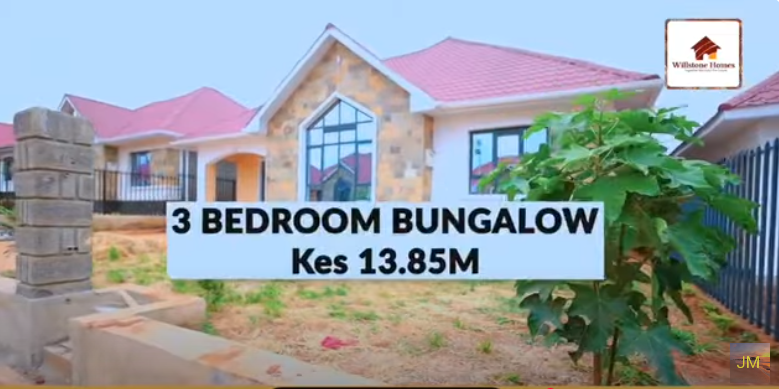When house hunters in Nairobi talk about location, price and schools, a new item quietly slips into the decision mix: will the plot or estate have reliable water? The accelerating problem — borehole depletion Nairobi housing market — is changing how developers design projects, how buyers evaluate value, and how entire neighbourhoods are priced. What once was a back-office engineering concern now sits on front-page property checklists.
From “we can drill” to “we can’t rely on it”: the science behind the shift

Urban groundwater in Nairobi has been under pressure for decades. Hydrological research shows that the Nairobi Aquifer System has experienced large groundwater-level declines — averaging several metres across the basin and, in hotspots, tens of metres — with a net loss in groundwater storage estimated at around 1.5 billion cubic metres since the mid-20th century. This decline is driven by population growth, unregulated abstraction (many private boreholes are not registered) and reduced river baseflow.
Government and sector reports back the story. The national statistics office and water-sector audits note expanded borehole drilling alongside service pressures at municipal treatment works — a signal that demand is outstripping reliable public supply and pushing residents and developers toward groundwater solutions.
What this means for housing supply and prices
Developers and buyers are reacting in three measurable ways:
- Premiums for reliable piped connections. Homes and estates with firm Nairobi City Water and Sewerage Company (NCWSC) connections, or documented bulk-water agreements, command price premiums because they reduce the buyer’s need to invest in deep boreholes, tanks and pumps. Recent rationing notices and pump failures reinforce this preference.
- Higher upfront infrastructure costs for developers. To ensure water security developers are factoring in deeper boreholes, larger storage tanks, and treatment equipment — costs that either reduce margins or increase sale prices. These technical fixes add to building budgets and extend breakeven timelines.
- Shift in buyer demand within the city. Areas perceived to have stressed groundwater — historically favored peri-urban suburbs where drilling was once cheap — are losing appeal compared with neighbourhoods with robust municipal supply or planned water infrastructure.
Quick data snapshot
| Indicator | Figure / Trend | Source |
|---|---|---|
| Estimated groundwater storage loss (since 1950) | ~1.5 billion m³ | Oiro et al. hydrology study. |
| Average groundwater-level decline (aquifer-wide) | ~4 m; up to 46 m in locations | Oiro et al. turn0search14 |
| Registered boreholes vs. estimated total | ~10,000 registered; est. ~45,000 total nationwide | WRA summary cited in sector overviews. |
| Recent municipal service interruptions (examples) | Multiple estates affected by rationing/pump failures (2024–2025 notices) | NCWSC / media reports. |
These load-bearing facts help explain why water is now a financial rather than only an environmental issue for housing.
Human cost and buyer behaviour: stories from the field

For many Nairobi residents, boreholes were once the reliable fallback when pipes failed. In low-income and middle-income settlements, private boreholes provide household access — at a cost. Studies of urban communities show that the poor often pay more per litre than piped users and are more vulnerable to dropping water tables, since shallow wells dry up first.
Buyers tell a consistent story: a home with a verified, permanent water source is no longer optional. Caroline, a Nairobi-based teacher, delayed moving into a cheaper peri-urban estate after learning that the estate relied on three ageing boreholes with no monitoring data. She opted instead for a smaller apartment in a central estate with an NCWSC bulk-supply contract. The trade-off was price for certainty.
Read Also: Best Neighborhoods to Buy a Home in Nairobi in 2026: Why Willstone Homes Leads the Way
Developers adapting — and innovating
A handful of trends are emerging among forward-looking developers:
- Integrated water planning at the design stage: larger communal tanks, dual piping (for potable and non-potable uses), greywater systems and on-site treatment to reduce dependence on deep groundwater.
- Public–private bulk supply deals: long-term purchase agreements with water companies to guarantee supply to finished estates, used as a selling point in marketing materials.
- Water footprints in ESG reporting: for mid-to-highend projects, developers include water-impact metrics to attract institutional investors and foreign buyers.
These measures increase initial capital requirements but reduce reputational risk. Buyers are increasingly asking for evidence — not just promises — such as water-balance studies, water abstraction permits, and historical borehole logs.
Policy, regulation and the unknowns

The water challenge is partly regulatory. Many boreholes are unrecorded and unpermitted, making sustainable management difficult. The Water Resources Authority (WRA) database undercounts actual abstraction, limiting enforcement options. Without stronger registration, monitoring and pricing, over-abstraction will continue to undermine local supplies.
At the municipal level, reports and committee reviews recommend increased investment in treatment works and network rehabilitation — but those investments require funding and political will. Recent WASREB and municipal committee documents flag financing gaps and urgent upgrades needed to prevent network failures that cascade into mass borehole dependence.
Read Also: Will Blockchain, Tokenization, or Digital Escrow Wallets Make Off-Plan Buying Safer?
Practical checklist for buyers, developers and investors
Buyers
- Demand documentation: water supply agreements, abstraction permits, borehole logs, storage capacity, and water-quality tests.
- Ask for contingency plans: what happens during prolonged NCWSC outages? Who maintains communal boreholes and pays for pumping?
Developers
- Adopt integrated water designs (rainwater harvesting, greywater reuse, communal treatment).
- Factor transparent water-clause guarantees into sales contracts (service level agreements, penalties for non-delivery).
Investors & lenders
- Use water-security due diligence as standard underwriting practice; projects with verified bulk supply should face lower risk ratings.
- Consider financing modular water solutions (treatment-as-a-service) that de-risk capital expenditure for developers.
Policy makers
- Enforce borehole registration and metering; tie planning approvals to verified water plans.
- Subsidize or incentivize decentralized water-reuse technologies in new developments.
Opportunities amid constraints

While the picture is challenging, it also creates market opportunities. Developers who bake water security into projects can differentiate units and command premiums. Tech firms offering monitoring-as-a-service (real-time borehole sensors, telemetry for pumps) can reduce operational uncertainty. And sustainable water solutions (onsite treatment, reuse) can become a selling point for eco-conscious buyers.
The intersection of water and property has shifted from background infrastructure to front-line risk and value. Borehole depletion Nairobi housing market is not a passing line item — it is a structural force reshaping where people want to live, what they will pay for, and how homes are built. For buyers, the message is clear: check the water paperwork before you sign. For developers and regulators, the task is to turn short-term fixes into sustainable, transparent water plans that protect both households and groundwater for the long run.





